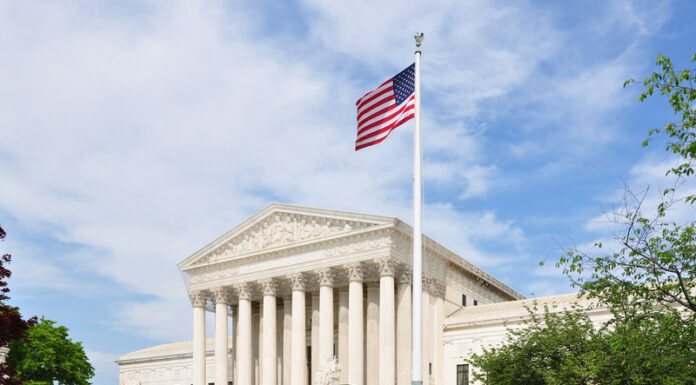President Donald Trump is calling for the impeachment of a federal judge who ruled against his deportation flights, drawing a rare public response from Chief Justice John Roberts of the Supreme Court.
The conflict between the executive and judicial branches is centered on U.S. District Judge James Boasberg’s decision to temporarily halt the administration’s deportations of noncitizens using the Alien Enemies Act.
Chief Justice Roberts remarked that impeachment is not an appropriate response to disagreements with judicial decisions, a principle that has been respected for over 200 years. He underscored that the appellate review process is designed for such disagreements.
The issue began when Judge Boasberg issued an oral order from the bench to return planes carrying 261 individuals headed to Central America back to the United States. The Trump administration claimed that 137 of these passengers were connected to the Venezuelan gang Tren de Aragua and were deported under the Alien Enemies Act. Two planes landed in El Salvador, disregarding Boasberg’s order, leading to allegations of the administration’s defiance of a court ruling.
In response, Trump launched a strong criticism of Judge Boasberg on his Truth Social platform, writing, “This Radical Left Lunatic of a Judge, a troublemaker and agitator who was sadly appointed by Barack Hussein Obama, was not elected President – He didn’t WIN the popular VOTE (by a lot!), he didn’t WIN ALL SEVEN SWING STATES, he didn’t WIN 2,750 to 525 Counties, HE DIDN’T WIN ANYTHING!” Trump wrote in his post.
The president further stated that Boasberg “and many of the ‘Crooked Judges’ I am forced to appear before should be IMPEACHED!!!”
This incident is the latest in a series of Trump’s criticisms of federal judges dealing with legal challenges to his policies. Some judges have temporarily blocked certain actions by the administration, causing discontent among the president’s supporters and calls for impeachment.
The Justice Department has appealed many of these decisions and has sought emergency relief from the Supreme Court in three ongoing legal battles. The administration has also contested Boasberg’s ruling, claiming that the deportations occurred over international waters, beyond the judge’s jurisdiction.
Republican Representative Brandon Gill of Texas has introduced articles of impeachment against Boasberg, supported by five other GOP lawmakers. However, House GOP leaders have not yet indicated if a vote will be held on the impeachment articles.
Federal judges in the U.S. serve lifetime appointments and can only be removed through impeachment by the House of Representatives and conviction by the Senate. Only 15 judges have faced impeachment proceedings in U.S. history, with the most recent case in 2010. Of these, eight were convicted and removed, primarily due to severe criminal acts or ethical violations.
Elon Musk, a senior adviser to the president, has repeatedly called for the impeachment of judges on social media, labeling them as “evil.” Last month on X, Musk stated that “radical left activists posing as judges” were attempting to undermine American democracy. He also suggested that judges issuing “truly terrible decisions” should face “some repercussions above zero.”
This is not the first instance of Justice Roberts countering Trump’s criticism of the judiciary. In 2018, after Trump criticized a federal judge who ruled against an asylum policy and called him an “Obama judge,” Roberts issued a statement defending the independence of the judiciary.
Chief Justice Roberts emphasized that the judiciary consists of dedicated judges who are committed to administering equal justice, rather than being defined by the presidents who appointed them.
In response to recent criticisms of the judiciary, two judges appointed by Republicans warned last week that such attacks threaten judicial independence.
Judge Richard Sullivan of the U.S. Court of Appeals for the Second Circuit, speaking on a Judicial Conference reporter call, stressed the importance of maintaining three independent government branches and an autonomous judiciary, stating, “That’s what makes it work, and so it’s crucial that people understand that.”
Sixth Circuit Judge Jeffrey Sutton highlighted the ongoing issue of threats against judges, noting that such threats jeopardize judicial independence. He pointed out the various forms of threats judges face, including impeachment threats, and cautioned that lowering impeachment standards would harm all three government branches.
Roberts has previously addressed the significance of judicial independence, including in his year-end report for 2024. He identified four threats to judicial independence: violence, intimidation, disinformation, and threats to disregard legally issued judgments.
Legal experts remain skeptical about the likelihood of any impeachment proceedings, such as those proposed by Trump, succeeding given the constitutional requirements and historical precedents. Courts hold the power to enforce accountability, such as by holding government officials in contempt if they defy judicial orders.








